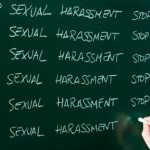And it what can definitely be termed as progress, as per World Economic Forum’s Global Gender Gap Report 2016, India has climbed 21 spots to rank 87th, which is a definite improvement from being 108 in 2015. The improvement in ranking, the report says, is driven largely by major improvements in education, where it has managed to close its gap entirely in primary and secondary education. With this jump in ranking, India has now overtaken China which is ranked 99th out of 144 countries. Iceland tops the latest rankings followed by Finland, Norway and Sweden.


The report measures gender gap as progress towards parity between men and women in four areas – educational attainment, health and survival, economic opportunity and political empowerment. On education attainment India has made moved up from 125th rank in 2015 to 113th in 2016. On economic participation and opportunity too, India has moved up to 136th rank in 2016, from 139th. But on health and survival, it has made little progress moving up by a mere one place over last year to rank 142nd in the world. On political empowerment it continues to be ranked 9th in the world, which is a major achievement.
When asked the reasons behind such sharp improvements, a WEF official said the Global Gender Gap Report uses data from UNESCO for the primary school enrolment and secondary school enrolment indicators. Their data is updated periodically for all countries and last went through a major update for India in 2015. The new data indicates that India has indeed closed its gender gaps in these two areas. However, enrolment in both primary and secondary education (for boys and girls) needs to be improved, the official said.
Gender gap in different domains is a very serious issue, and remains both a cause and effect of female subjugation across the world. While we are happy with the progress that India has made with respect to its ranking last year, we can’t help but point out that we’re still lagging far behind in the global stage.


All aspects of gender gap as delineated by WEF need to be considered individually, as well as in relation to each other. We had earlier written about pay gap, which is an issue which affects every country. Just last week, Iceland made headlines across the world, when women protested the 14% pay gap between men and women by leaving work earlier. Political empowerment, health, and educational attainment, are also serious issues, which need to be addressed separately, as well as in tandem, so as to lessen and eventually remove the gender gap completely. Only when women are treated on par with men in all domains, can we truly move towards being a gender just society.
Discuss this article on Facebook





